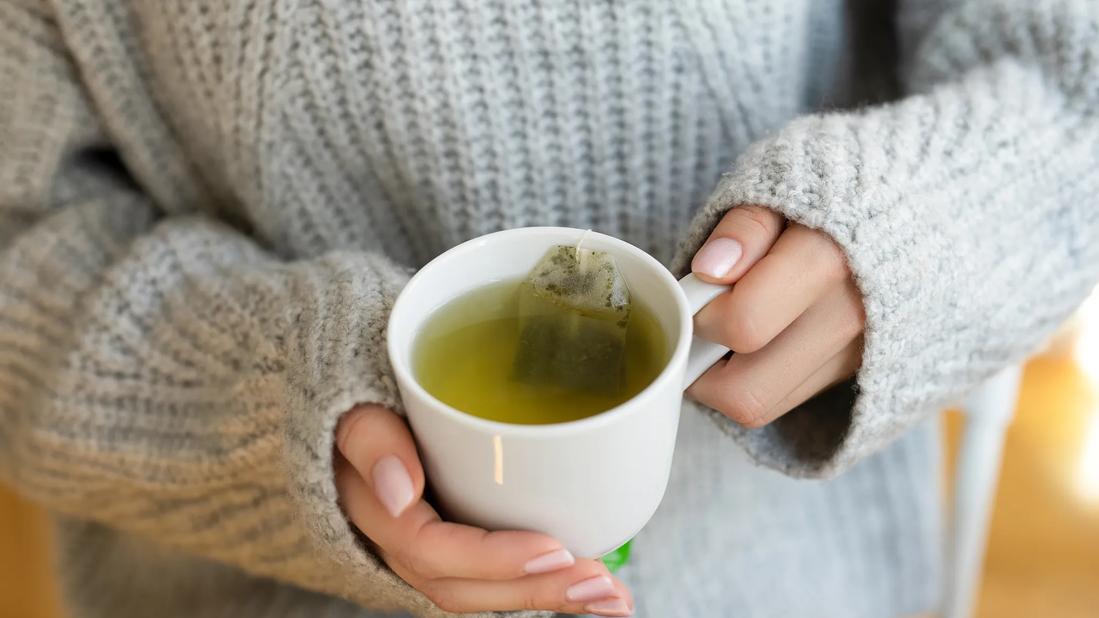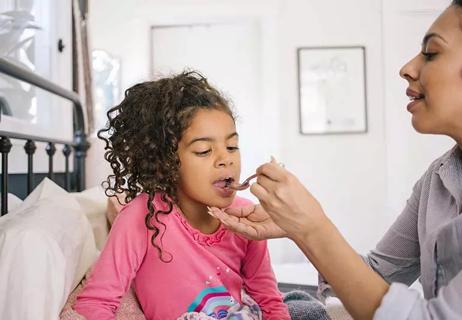Over-the-counter options range from syrups to pills, lozenges to menthol rubs — but medication isn’t always the best treatment

When you have a cough that won’t quit, you know the hunt for relief is on. Full force.
Advertisement
Cleveland Clinic is a non-profit academic medical center. Advertising on our site helps support our mission. We do not endorse non-Cleveland Clinic products or services. Policy
And when your search leads you to the over-the-counter (OTC) cough medicine aisle, you investigate your options. There’s no shortage of them.
But what’s the best OTC cough medicine? Will anything give you a break?
We talked with family medicine physician Matthew Goldman, MD, about the kinds of cough meds out there and what really works.
A visit to your local pharmacy reveals row after row of syrups, pills, lozenges, rubs, patches and other products promising to calm that nagging cough.
And in addition to coming in different forms, they come with different ingredients. Some are better for some uses. Others for other needs. And often, cough medicine may not be your best answer at all. More on that in a bit.
Here’s a quick look at some of the most common cough medicine ingredients and their best uses:
| Ingredient | Common brand names | Pros | Cons |
|---|---|---|---|
| Dextromethorphan | Robitussin® and Delsym® | Best for dry (nonproductive) coughs | May cause drowsiness or dizziness |
| Guaifenesin | Mucinex® | Helps loosen mucus to make coughs more productive | May increase coughing initially, and not recommended for nighttime use |
| Pseudoephedrine | Sudafed® | Reduces nasal congestion | Can cause jitters or insomnia |
| Diphenhydramine | Benadryl® | Can be helpful at night | May cause drowsiness and dry mouth |
| Menthol | Vicks® products, multiple brands of cough drops and lozenges | Not medicated, few side effects and generally safe | Relief is usually temporary |
| Ingredient | |||
| Dextromethorphan | |||
| Common brand names | |||
| Robitussin® and Delsym® | |||
| Pros | |||
| Best for dry (nonproductive) coughs | |||
| Cons | |||
| May cause drowsiness or dizziness | |||
| Guaifenesin | |||
| Common brand names | |||
| Mucinex® | |||
| Pros | |||
| Helps loosen mucus to make coughs more productive | |||
| Cons | |||
| May increase coughing initially, and not recommended for nighttime use | |||
| Pseudoephedrine | |||
| Common brand names | |||
| Sudafed® | |||
| Pros | |||
| Reduces nasal congestion | |||
| Cons | |||
| Can cause jitters or insomnia | |||
| Diphenhydramine | |||
| Common brand names | |||
| Benadryl® | |||
| Pros | |||
| Can be helpful at night | |||
| Cons | |||
| May cause drowsiness and dry mouth | |||
| Menthol | |||
| Common brand names | |||
| Vicks® products, multiple brands of cough drops and lozenges | |||
| Pros | |||
| Not medicated, few side effects and generally safe | |||
| Cons | |||
| Relief is usually temporary |
Be sure to read medication labels thoroughly. Many cough medicine products combine multiple ingredients into a single product, including:
Dr. Goldman recommends caution when using cough medicine products containing more than one active ingredient. Take only as directed and beware of taking additional medications at the same time to avoid overdosing.
Advertisement
Let’s take a closer look at each.
Dextromethorphan is a very weak opiate and cough suppressant medicine that’s best used for a dry cough. That’s to say, a cough that doesn’t have you hacking up mucus.
Coughing is a reflex that helps clear your airways. Dextromethorphan dulls that reflex.
“Dextromethorphan acts on the brain’s cough center to calm your cough reflex so you no longer feel the urge to cough,” Dr. Goldman explains.
It’s typically sold as a cough syrup, but it can also be found sometimes in pills, soft gels and gummy formulas.
Because dextromethorphan acts on your central nervous system, it can cause some people to experience dizziness or drowsiness. Misuse of dextromethorphan for a recreational “high” (sometimes called “robo-tripping”) can be harmful. Take caution to use it only in proper doses and keep it away from children and anyone who may abuse it.
If your cough is related to nasal or chest congestion, guaifenesin may be an option. Guaifenesin is an expectorant and can help make coughs more productive. It’s typically sold as a pill that you swallow, but it also comes in syrups and gummies.
“Guaifenesin can help to loosen up mucus so that your body can expel it,” Dr. Goldman says.
In other words, it can help you cough it out and keep that runny nose flowing. That’s why taking guaifenesin may mean that your cough and other symptoms could get worse before they get better. And also why taking it at bedtime isn’t your best bet ... unless you want to be up blowing your nose and coughing all night.
That said, some formulations may combine guaifenesin with a sleep aid so you can get the rest you need. And because it helps loosen up congestion so your body can get rid of it, guaifenesin may also help you get over a cough or cold faster.
Pseudoephedrine is a nasal decongestant. It can decrease mucus production (aka, dry it up), which can help keep the coughing at bay.
It’s most commonly taken as a pill you swallow.
Pseudoephedrine doesn’t require a prescription, but in the United States, it’s sold behind the counter. That’s because it can be used in the manufacturing of methamphetamine. You may be required to show your driver’s license or other accepted form of identification to purchase pseudoephedrine.
Sudafed is the most common brand name of pseudoephedrine.
A similar-sounding product, Sudafed PE®, is available on some store shelves, rather than behind the counter. But Sudafed PE uses the ingredient phenylephrine, not pseudoephedrine. A U.S. Food and Drug Administration (FDA) advisory committee has advised that phenylephrine is not effective.
Advertisement
Diphenhydramine is an antihistamine and can be used for a number of common complaints — from allergies and motion sickness to, yes, coughs.
Diphenhydramine can have a sedative effect. As in, it makes you sleepy.
So, it can be most helpful at bedtime. That’s why you’ll commonly find it used as an ingredient in “nighttime” and “PM” formulations of cough medicines.
Products containing menthol are often sold as cough suppressants, too. And while these products claim to be “medicated,” they typically don’t contain any conventional medicine. Instead, they’re often made with menthol, an aromatic substance that opens the airways to help reduce cough and congestion.
You’ll find menthol in things like cough drops, rubs, patches and shower bombs. (If it smells minty, chances are, it’s made with menthol.)
“Menthol can help reduce coughing by opening airways and providing a cooling sensation,” Dr. Goldman explains. “And because they’re not actually medicated, products made with menthol are typically safe. But some people may find that topical menthol products, like rubs, can irritate their skin.”
Whether cough medicine really does the trick is up for some debate.
“There are differing opinions regarding the value of OTC cough medicines,” Dr. Goldman reports. “Some experts suggest letting a cough resolve naturally, as coughing helps clear irritants and mucus. Others recommend using medications to relieve symptoms, especially if the cough disrupts sleep or daily activities.”
Advertisement
Research on the effectiveness is mixed. Some suggest that cough medicine is no better than a placebo.
Coughs typically wax and wane naturally throughout the day and over the course of an illness. So, what some people may chalk up to the medicine working may be nothing more than the cough running its course.
What’s more, some cough medicine keeps your body from doing what it naturally wants to — kick out the mucus, irritants and germs that are making you sick. So, when you’re suppressing your body’s natural germ-eviction system, you’re not really fixing the problem. Just masking the (irritating and stare-inducing) effects.
Additionally, even if cough medicine makes it a little easier to get some sleep and go about your day, it can mask an illness that deserves medical attention. Like a bacterial infection, asthma, whooping cough or pneumonia.
Dr. Goldman’s best advice? “Using cough medicines may be beneficial if the cough is nonproductive and interferes with sleep or daily activities. However, productive coughs, which help expel mucus, are often best left untreated.”
And cough medicine shouldn’t be used in children under 4. Consult a healthcare provider about whether your child’s cough would benefit from medication.
Advertisement
When cough medicine isn’t the best route for your symptoms, other solutions help you feel better.
Products containing menthol can be an effective substitute for medications. You can also try other home remedies, like:
How long is too long to deal with a cough? Dr. Goldman recommends seeing a healthcare provider if your cough lasts more than three weeks or if you have symptoms like chest pain, shortness of breath or fever.

Sign up for our Health Essentials emails for expert guidance on nutrition, fitness, sleep, skin care and more.
Learn more about our editorial process.
Advertisement

Honey can help relieve a cough by lowering inflammation in your airways and loosening up mucus

Dry coughs mean irritation, while wet coughs mean mucus

Germs spread quickly and easily, so covering your face, washing your hands and avoiding close contact are key

A chronic cough is one that lasts for eight weeks or more — and means you should see a healthcare provider

Certain medicines and home remedies like ginger, honey and thyme can help calm a cough

Kids under 4 shouldn’t use cough and cold medicine — older kids may or may not benefit

Germ-killing chemicals in the water can lead to respiratory issues

Taking a warm shower before bed and drinking warm liquids throughout the day can help

The tropical fruit is a good source of antioxidants and vitamin C

Most people fall asleep within 10 to 20 minutes, but if your experience is different, adjusting your sleep schedule may help

Exploring your hidden side can lead to better understanding of what makes you tick